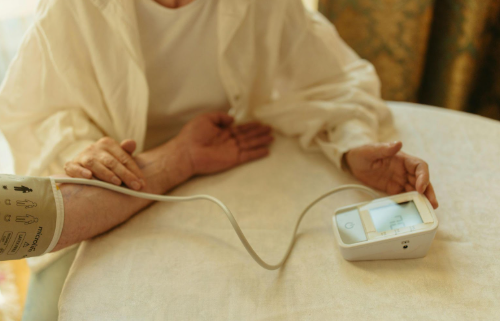Home Health vs. Nursing Home: Which Is the Best Choice?

As people age or face long-term health conditions, questions about long-term care often arise. Deciding between home health care and nursing home care is not easy. It involves thinking about a person’s health, comfort, safety, finances, and personal preferences. Each option provides a different level of care and lifestyle, so making the right choice depends on many factors.
Let’s explain the key differences between home health care and nursing home care. It also helps families understand which option may suit their loved one’s needs best.
Home Health Care
Home health care is a type of medical support offered to people in their own homes. It allows individuals to stay in familiar surroundings while receiving help with daily activities and medical care. This type of care is usually recommended for people who do not need full-time supervision but still require support for their health or recovery.
A licensed nurse or therapist may visit regularly to monitor the patient’s condition. Care may include medication management, wound care, physical therapy, or help with mobility. In some cases, a home health aide may assist with bathing, dressing, and preparing meals.
Home health care offers more flexibility. Families can choose how many hours of care are needed each day or week. Many people feel more comfortable at home and enjoy the emotional benefits of staying in a familiar place.
Nursing Home Care
A nursing home is a residential care facility for people who need round-the-clock supervision. This type of care is often the right choice for those with serious health conditions, advanced age, or cognitive decline. Residents receive full-time support with medical care, meals, personal hygiene, and social activities.
In a nursing home, trained staff are available 24/7. There are registered nurses, licensed practical nurses, and care aides who help manage health problems, monitor medications, and provide emergency care when needed. This environment is designed to support people who can no longer manage their daily needs at home.
Nursing homes also offer structured routines and organized activities that help residents stay socially active and mentally engaged. The safety of residents is closely monitored, and emergency care is readily available if a problem occurs.
Comparing Medical Support
Medical support in both settings depends on the individual’s condition. Home health care works well for patients who are stable but need medical supervision at home. It may not be suitable for someone with complex health needs or who experiences frequent emergencies.
On the other hand, nursing homes are built to handle more serious conditions. They have doctors and nurses on-site or on-call. This means medical care is more immediate and often more detailed in a nursing home than at home.
Considering Independence and Lifestyle
Many people prefer to stay at home because it gives them more freedom. They can follow their own routine, cook their meals, and enjoy the privacy of their own space. Home health care supports this lifestyle and works around the individual’s habits and schedule.
In contrast, nursing homes have fixed routines for meals, medication, and activities. While this structure helps many residents feel secure, it may feel limiting to someone who values their independence. Some people adjust well to a shared living space, while others may find it challenging.
Looking at Cost Differences
The cost of care is a major factor in choosing between the two options. Home health care may seem more affordable at first, especially if only a few hours of care are needed. However, when 24-hour care becomes necessary, the cost can rise quickly and may even surpass the cost of a nursing home.
Nursing homes typically charge a fixed monthly fee that covers room, meals, medical care, and staff support. In many cases, long-term insurance, Medicaid, or veteran benefits may help cover these expenses. Families should carefully compare both short-term and long-term costs before making a decision.
Assessing Safety and Emergency Support
Safety is another important point to consider. In home health care, the patient’s safety depends on the home environment and the frequency of caregiver visits. Homes may need to be modified with grab bars, ramps, or medical equipment. If a person falls or has a sudden health problem, help might not arrive immediately unless someone is present at all times.
Nursing homes, however, are designed with safety in mind. The staff is trained to respond to emergencies, and medical support is always nearby. For people at high risk of falling, wandering, or serious health events, this kind of supervision can be a better choice.
Involving the Family
Home health care often requires family members to take on part of the caregiving role. While many families want to stay involved, the emotional and physical demands can be overwhelming. It may also be difficult to manage a loved one’s care while balancing work and other responsibilities.
In a nursing home, the professional staff handles daily care tasks. This allows families to focus more on emotional support and spending quality time rather than managing medical needs or daily routines.
Choosing Based on the Level of Need
When making a choice, the level of care a person needs should guide the decision. If someone is mostly independent but needs occasional medical visits or help with personal care, home health care is often a good fit. It allows them to stay connected with their community and keep their daily habits.
If someone needs full-time medical supervision, help with all daily activities, or is no longer safe at home, a nursing home may be more suitable. It provides a safer and more structured environment with immediate support.
Looking for trusted care in the comfort of your home? Choose us at
Five Star Home Health Care Agency for compassionate, professional, and reliable support tailored to your needs.
Contact us today to learn how we can help your loved one live safely and comfortably at home.










